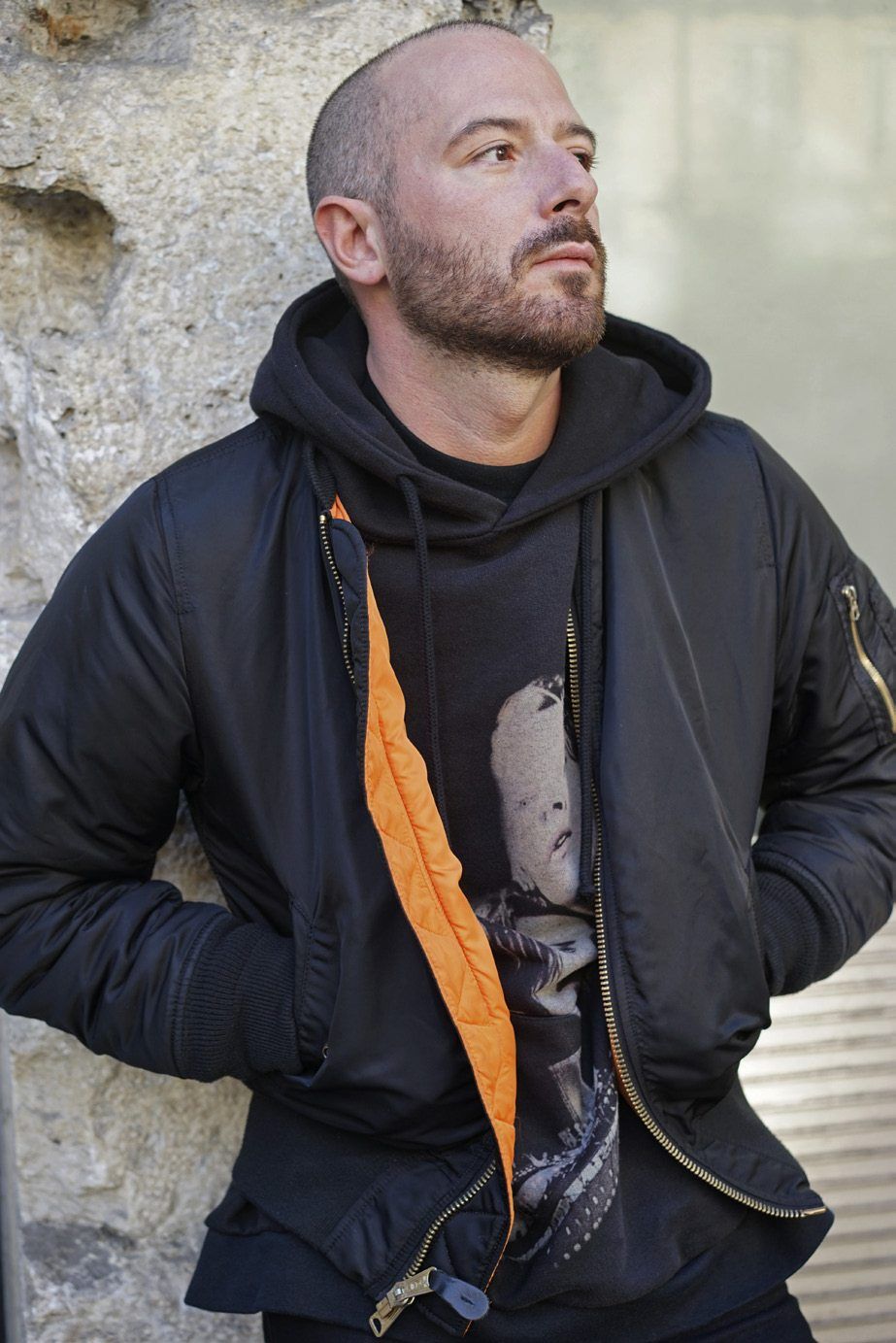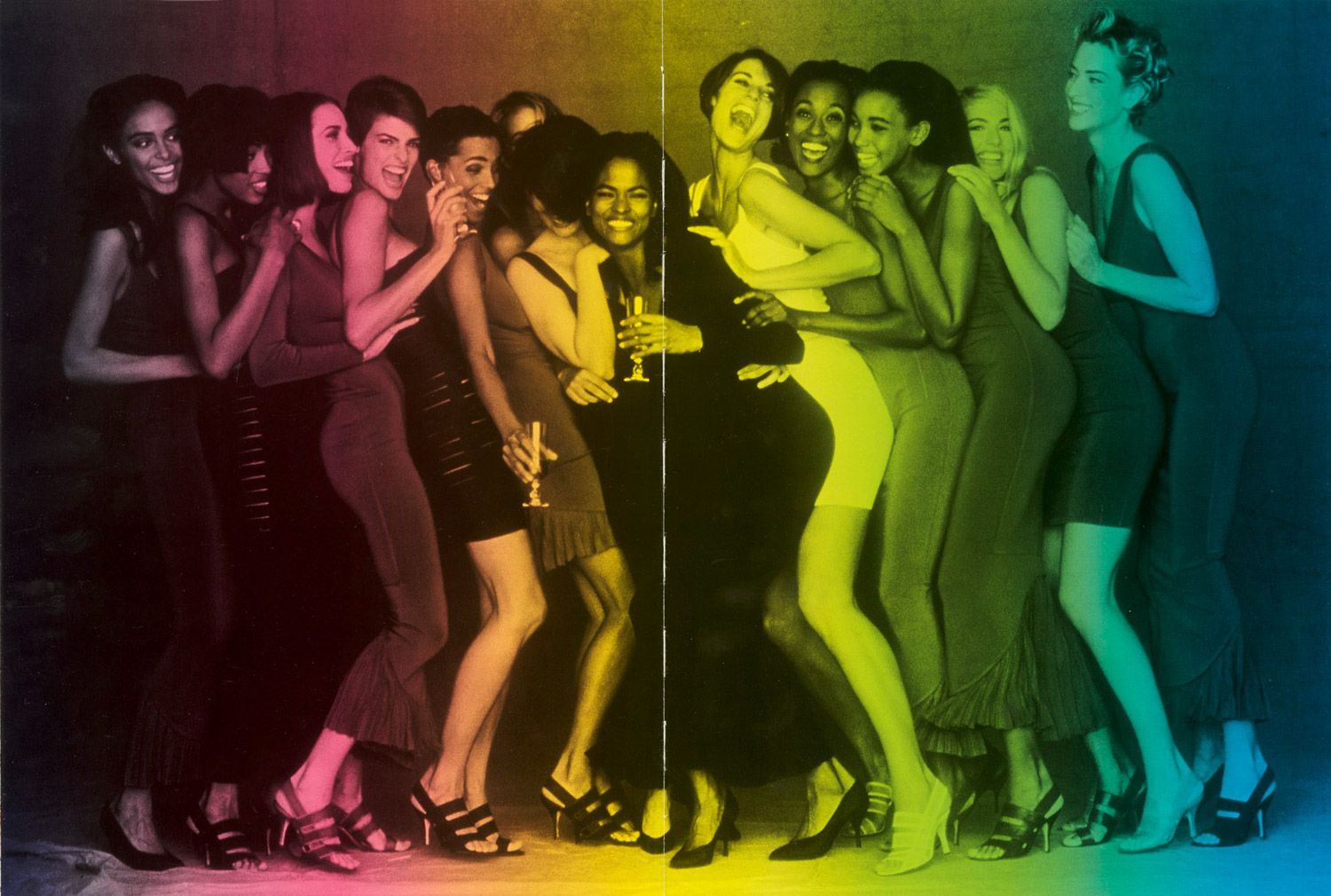“Seduction is a philosophy, and the fashion world is nothing less than a world of temptations.” In the Garden With LAETITIA CASTA
|Jina Khayyer
This time in 2020, runway shows were still IRL – and this month’s continued digital presentations are a glaring reminder of just how much industry norms have changed in the last year. So, for everyone missing Paris in February, be it for its Valentine’s Day romance or for the thrill of the latest collections: join us in the gardens of the Musée Rodin with LAETITIA CASTA and PIERRE-ANGE CARLOTTI (via 032c Issue #37).
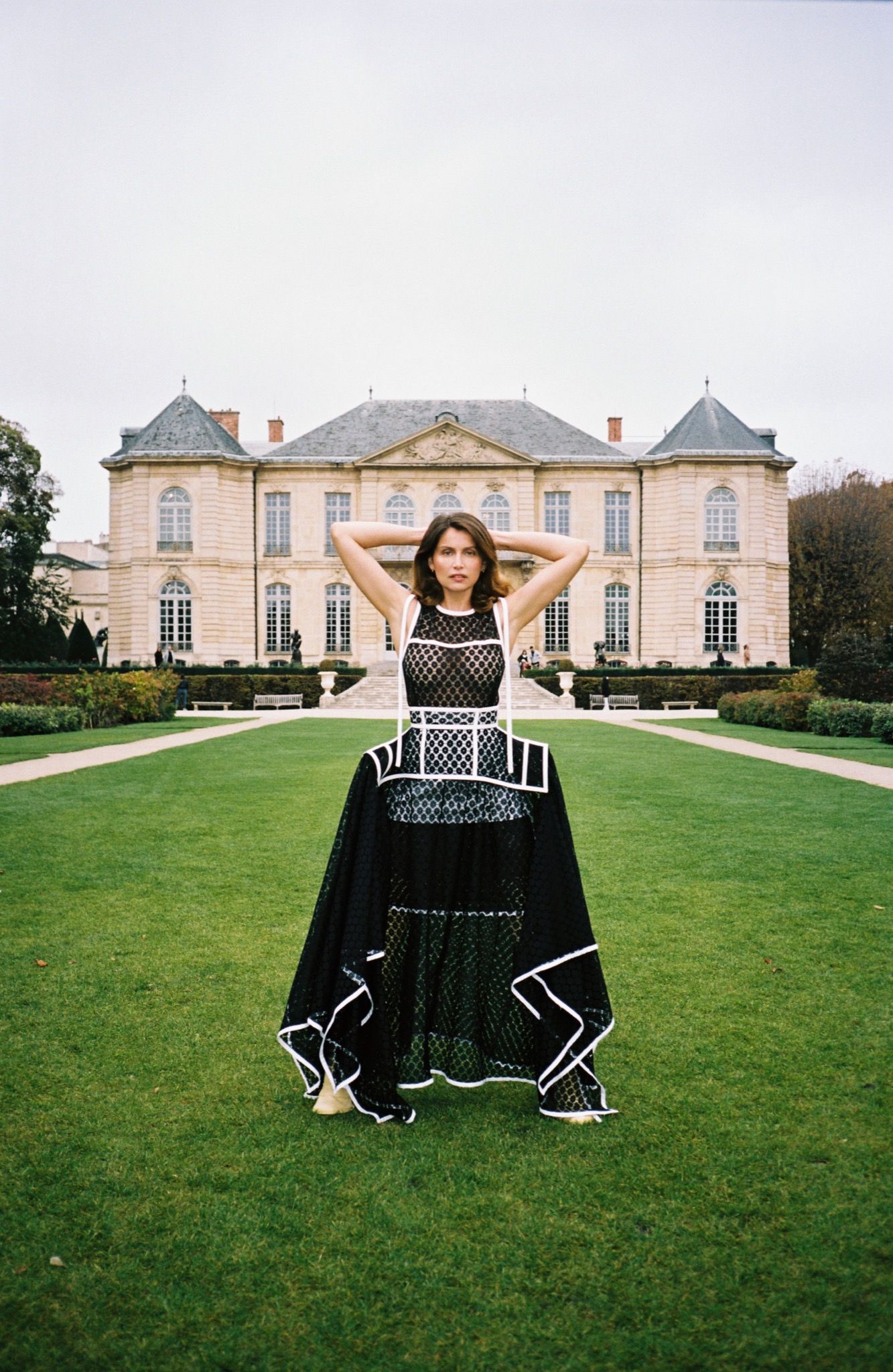
Paris, Musée Rodin.
Model, actress, director, daughter, sister, wife, mother, public heroine, national symbol, philanthropist, activist – LAETITIA CASTA is everything, but with a SUPER in front. Meet SUPERWOMAN Laetitia Casta in conversation with Jina Khayyer, unveiling her SUPERPOWERS.
Jinna Khayyer: You insist you are not a feminist, but a woman. What’s the difference?
Laetitia Casta: The word feminist is vague. If a woman says she is a feminist, what exactly does she want to say? Is she angry? A revolutionary? A Simone de Beauvoir feminist? I never liked labels. Even when I was a little girl I didn’t relate when anyone tried to categorize me. That’s why I rather say I’m a woman. Being a woman is a holistic force, it’s the strongest fury there is. It’s the backbone of all being. And it obviously includes being feminine, a feminist, angry, fragile, a fighter. Being a woman is everything.
It has been said that with your height, at 1.69 meters tall (c. 5’6”), and your curves, you have challenged the codes of modeling. When did you start understanding the power of your physique?
In my childhood I never considered myself pretty. Nobody really looked at me, not even my parents. I was a loner. I grew up in the countryside, in Normandy, and spent most of my time alone in the woods. I was a child in contemplation, busy with my thoughts. I enjoyed the silence. Some called me autistic. The last thing I would have been confronted with was any notion of what beauty is, or could be. The first time I became aware of it was when a woman stopped me in the street, thanking me and telling me to continue. I had just been pulled into the fashion world, which for me felt like an exciting escape from my reclusion. At first, I didn’t take it seriously, partly because the people in the fashion industry gave me a hard time for being short and having curves. I wasn’t sure what I had to give, until that woman on the street complimented me.
It was so revealing: it taught me that beauty is in the eyes of others. It encouraged me to continue when I understood that other women could identify with me, even connect with their own beauty through me, just as I, in that moment on the street, became aware of my beauty through another woman’s gaze.
Soon after this encounter, Monsieur Saint Laurent, the greatest couturier of his time, introduced you as his muse. What did he see in you? What did he ask of you?
As I mentioned, I didn’t feel comfortable being a model. I wasn’t sure what my role could be. But I also wasn’t someone who allowed anyone to push me around, which is all anyone does in the fashion world. Not everyone, of course, but a lot of people. I remember before I met Monsieur Saint Laurent, before he selected me, the people around him were really awful. I wasn’t treated nicely. So I didn’t want to have anything to do with that brand. When my agent got the call that Monsieur Saint Laurent would like to meet me, I accepted under one condition: I wouldn’t wear their white shirt again, or the red lipstick they always made you wear.
What’s with the white shirt and red lipstick?
The white shirt is like a white canvas. It helps them to project anything on to you, so they can see if they will be able to transform you.
What did you wear instead?
A black turtleneck top and a short black leather skirt. And I wore my hair down.
Was wearing your hair down a rebellion too?
Yes. They want you to wear a chignon, so they can see the outlines of your face and neck. I didn’t want to obey. I’d had it with them, and I wanted to make sure they understood that. Monsieur Saint Laurent had no idea what was going on in the background, that I was rebelling. I was touched when I finally met him. He was extremely shy, so gentle and mild; it felt like I was encountering my mother and father at the same time.
How so?
It was the completely pure way he looked at me. There was no ulterior motive, no hidden agenda. He did not project anything on to me; he just looked at me and waited to see what I would show him. He didn’t try to transform me. He tried to get the best out of me and show me all my potential. He was the first one to show me how to unravel my femininity.
“I grew up in the countryside, in Normandy, and spent most of my time alone in the woods. I was a child in contemplation, busy with my thoughts. I enjoyed the silence. Some called me autistic.”
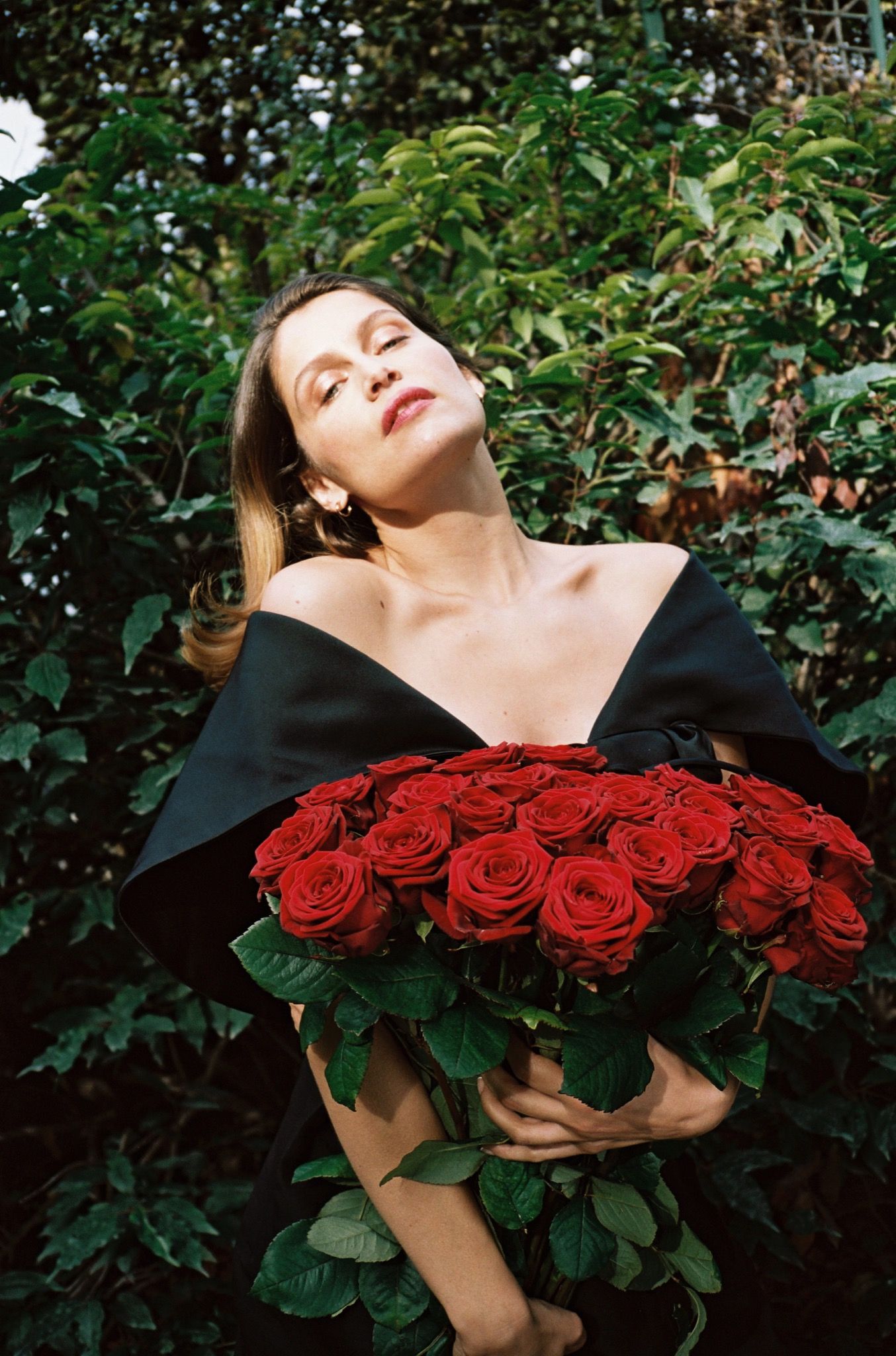
You seem to have always avoided working for blockbuster brands. For example you recently posed for J.M. Weston and the avant-garde photographer Katerina Jebb, who is known for scanning her subjects rather than photographing them.
I like to be challenged. Jebb is not looking for anything obvious. It was strange to be scanned, body part by body part. It was almost as if the scanner unveiled my inner alien. I felt completely naked, inside and outside. The fact that the scanner doesn’t take one image like a camera does, but creates a puzzle, is very interesting. It allows the viewer to find their own notion of beauty in any piece of the puzzle. I like that a scanner takes the focus away from the recognizable. It excites me to question what is evident.
Sounds like a campaign to promote a philosophy, rather than a pair of shoes.
Seduction is a philosophy, and the fashion world is nothing less than a world of temptations. An image is only successful if you are able to seduce the eye of the other.
Do you ever feel objectified?
If I sense that, I say “no.” I hate being put in a cage. I am not a golden bird.
Even when you were a Victoria’s Secret angel?
Victoria’s Secret came to me at a time when I was extremely successful. It’s true, it’s a commercial brand, a big contract – of course they want to squeeze you. But as I had already accomplished something, I was able to stay true to my values. I wanted to do it on my own terms and requested to be photographed by Dominique Issermann. I was struggling with my beliefs, asking myself if it was possible to be an independent woman and a sexy Victoria’s Secret angel who is obviously trying to seduce men. I came to the conclusion that seducing a man while being an independent woman does not have to be a contradiction. Still, I didn’t want to be an object. I knew if they obeyed my wish to use Dominique Issermann I would be able to direct the gaze. I had worked with Issermann before and liked the way she looked at me. She didn’t take advantage of me. It’s only interesting to be an object if you are simultaneously the subject. Victoria’s Secret agreed to my terms, but it didn’t last long. I felt too guilty wearing all those kinky suspenders and costumes, and dressing up like a doll. I felt like I was betraying my beliefs, so I stopped working with them
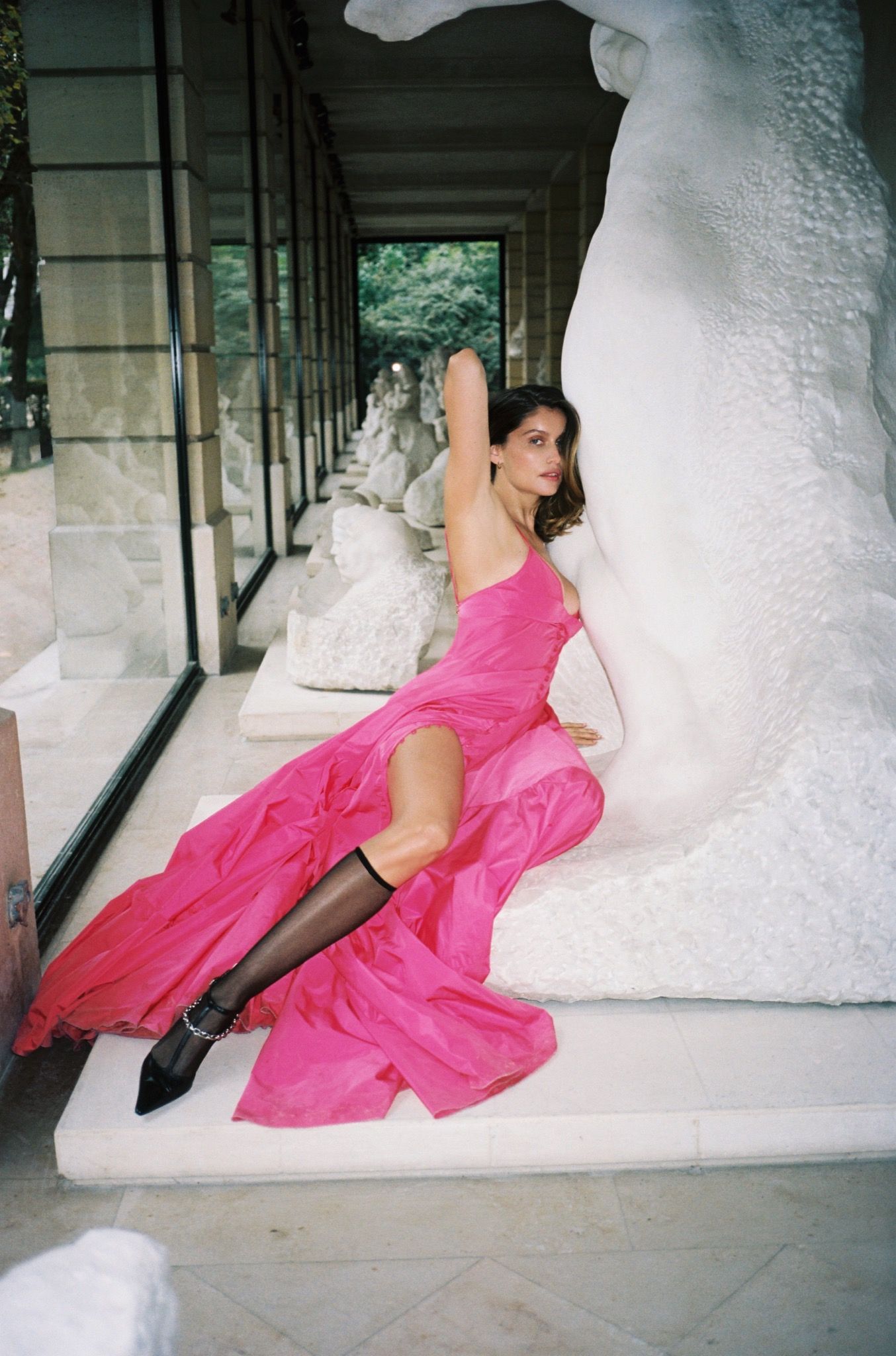
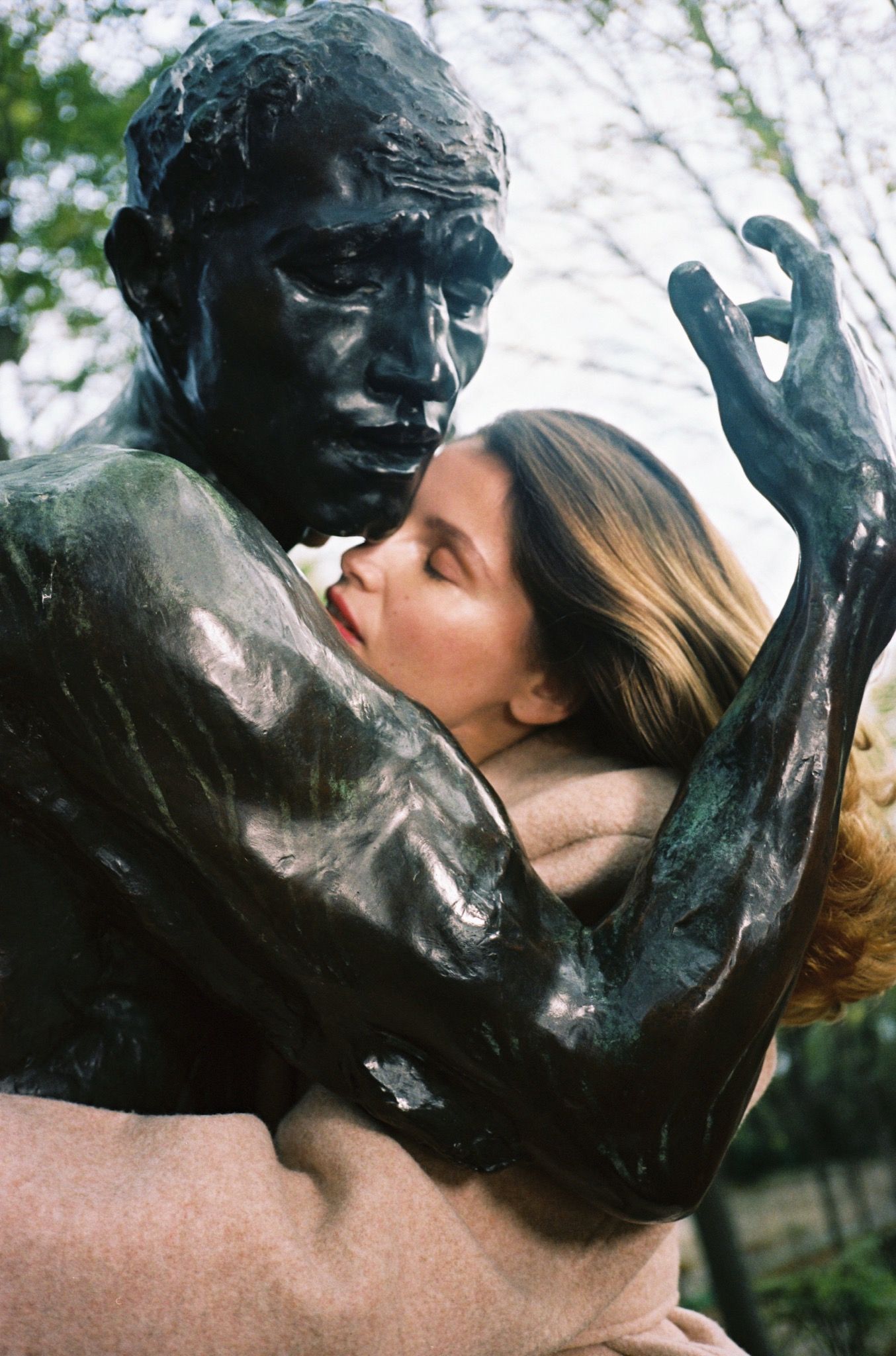
Didn’t that have a negative impact on your career?
It was clearly a turning point, as it influenced the way I looked at the camera. My gaze toward myself changed. I already knew that I never wanted to be portrayed as a victim, but suddenly I knew I only wanted to be portrayed as an Amazon. So, in the end, this episode had a positive impact on my career. Also, at about the same time I got pregnant with my first child, which affected the way I viewed myself. I remember everyone around me telling me, “You can’t be pregnant now, you are on top of your game, this is a big moment for you, you can become super this, super that.” I resisted. For me it was always clear, even at the beginning of my career, that I would only operate on my own terms. My daughter is 19 today. It never harmed her or me that I was a working mother.
You were young at that time – 21, 22. Where did your strength and conviction come from?
I had a difficult childhood. I was a misfit, because of my shyness and my borderline dress ISABEL MARANT autistic behavior. I was bullied, so I had to learn to defend myself at a very early age. When you have to fight for yourself to survive as a kid, you become unbeatable.
Most superstars are extremely careful with their image. You seem bold, never afraid to play polemical female characters: a prostitute, a lesbian in Rihanna’s music video for “Te Amo,” a pin-up for the latest Pirelli Calendar. You play these characters so powerfully, as if you want to prove there are no taboos for women.
It was actually the photographer Herb Ritts who encouraged me to act. He brought me to America and introduced me to Chris Isaak, who gave me my first acting call. Saying yes to Isaak, like doing the Rihanna clip, was a political decision for me. Any role I choose, I play because I want to make a statement. Breaking sexual taboos for women is an important cause for me. So when I said yes to Rihanna, it was because I wanted to have a conversation about homosexuality, I wanted to show that women are sexual, without limits.
You are also never afraid to play your assets: your red carpet outfits are impressive, often very tight, always incredibly sexy, and sometimes even almost naked – like at the César ceremony, when you presented an award in a transparent muslin dress. Who choses your outfits?
I do. But my César dress was a special dedication to Monsieur Saint Laurent. His death moved me in many ways. As I told you before, he was the one who helped shape my ideas of what it means to be a woman. On that night I wanted to pay homage to him, so I chose to wear one of his most iconic designs, a couture piece from 1968, which caused a scandal back in the day. Surprisingly, nothing has changed since then. People were, once again, outraged. It created a real polemic. People attacked me, saying, “How can you be naked at the Césars?” I had just given birth to my third child, my daughter Athena. I was still breastfeeding. I tell you, people can’t handle that much femininity. I remember Robert Redford coming up to me, saying, “Don’t get too cold.”
You are constantly pushing the boundaries of womanhood. In France you are celebrated as a heroine for it, and are one of the few women, after Brigitte Bardot and Catherine Deneuve, to give Marianne, the national personification of France, your profile. You appear on stamps, coins, and as a bust in every city hall of the country. What does that mean to you, to be the face of Marianne?
I was young at the time they asked me – 22. I was doing my first television series then, playing a partisan. So when they asked me, my first thought was, “Yes, that’s me – I am a partisan, I am a Marianne, and Marianne is a global image of matriarchy.” I profoundly believe in the values she represents: freedom, equality – maybe less so fraternity and more féminitude. I love the idea of a world ruled by Mariannes. France has many female heroines actually.
Many countries have a female personification. In Germany we have Germania, in America they have the Statue of Liberty, Russia calls itself the “Motherland.” But women are still kept small and are far from being equal to men. Did you ever personally experience a disadvantage, or even an abuse of power?
Oh yes. I had my Harvey Weinstein moment, actually with Weinstein, but I said no. As a result, I didn’t have a film career in America. But I don’t see myself as a victim. It was my choice to say no. I could have said yes and had a career in Hollywood, and I still would not have felt like a victim, because it would have been my choice to say yes. I know it’s controversial, what I’m saying. It’s a difficult debate and it cannot be generalized. Each case is different. And of course it is not right that men abuse their power, and of course we need to do anything we can to stop men from abusing women – not just at work, but everywhere. There is so much to do.
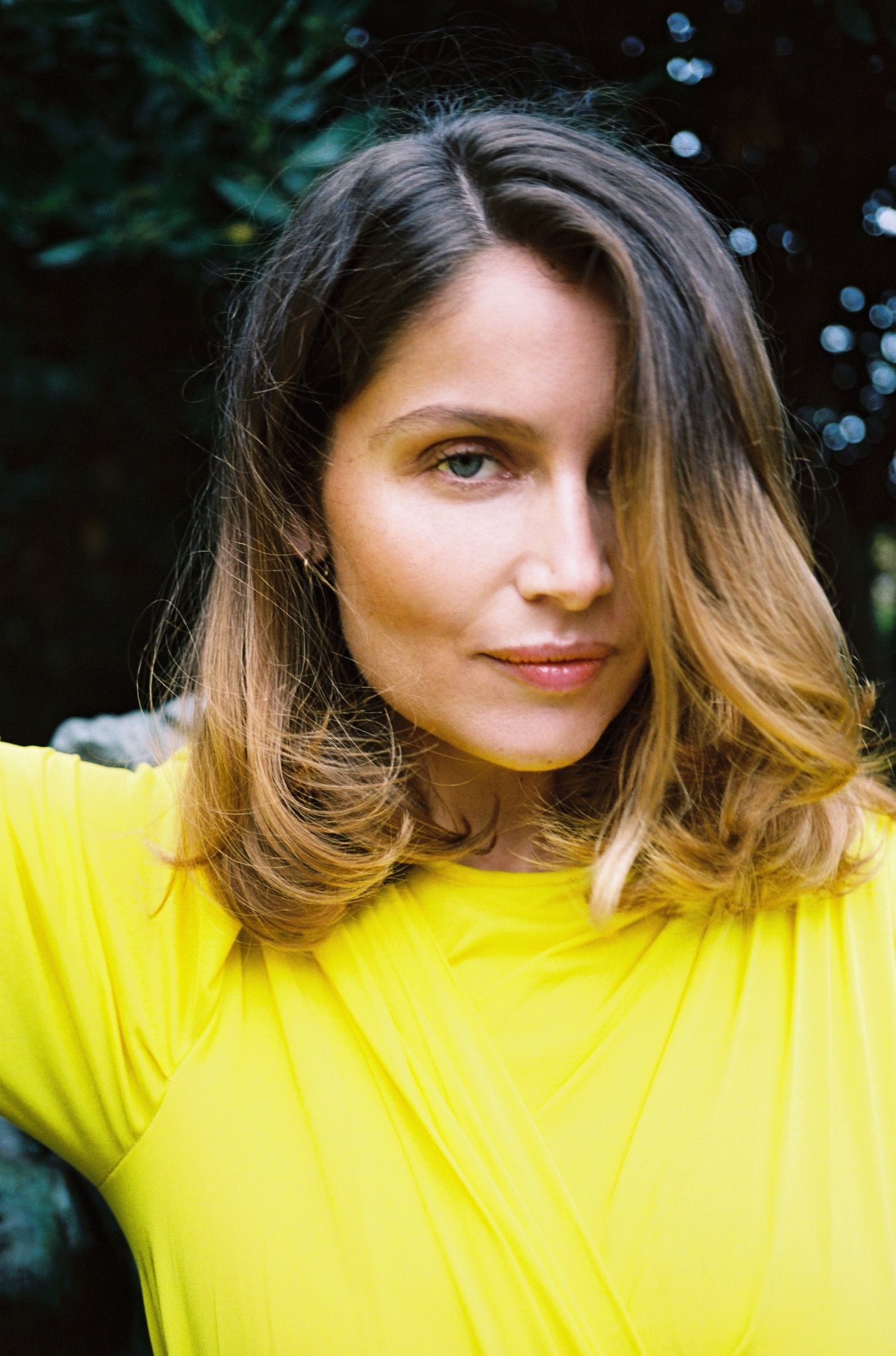
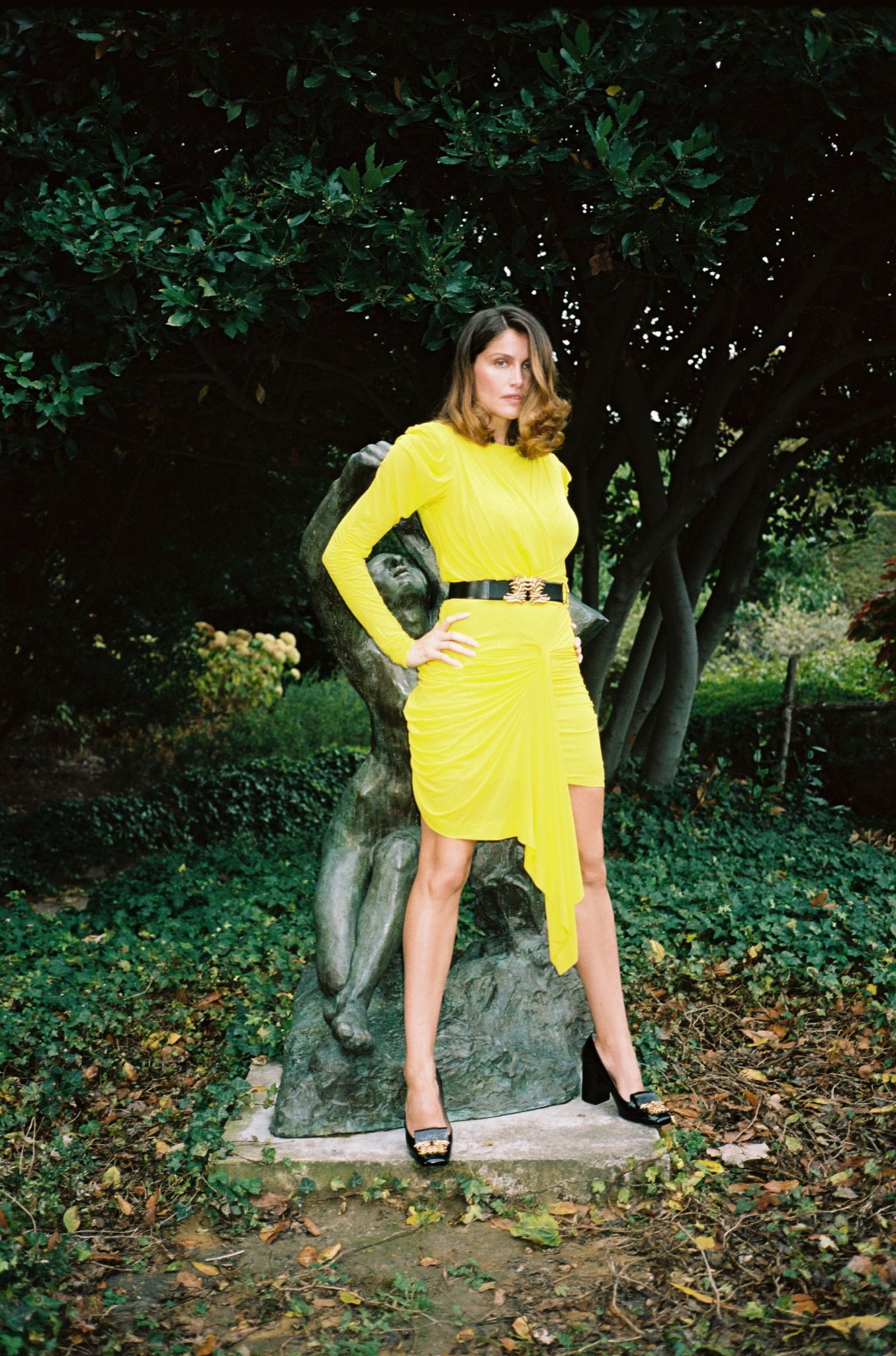
Are you doing anything?
Yes. I am supporting UNESCO’s Go Girl initiative, which is fighting child marriage.
On a scale from zero to ten, how high do you value family?
To me, family is as important as my creativity. I’m struggling with my priorities, but I try to live a 50/50 life.
Are you close to your parents?
As a daughter, yes. As a woman, no.
How come?
Their perception of what a woman should be is just different than mine.
What values were you raised with?
That others count most.
That’s a generous take.
We are nothing on our own. We need the other to exist, to be happy, so we must cherish one another.
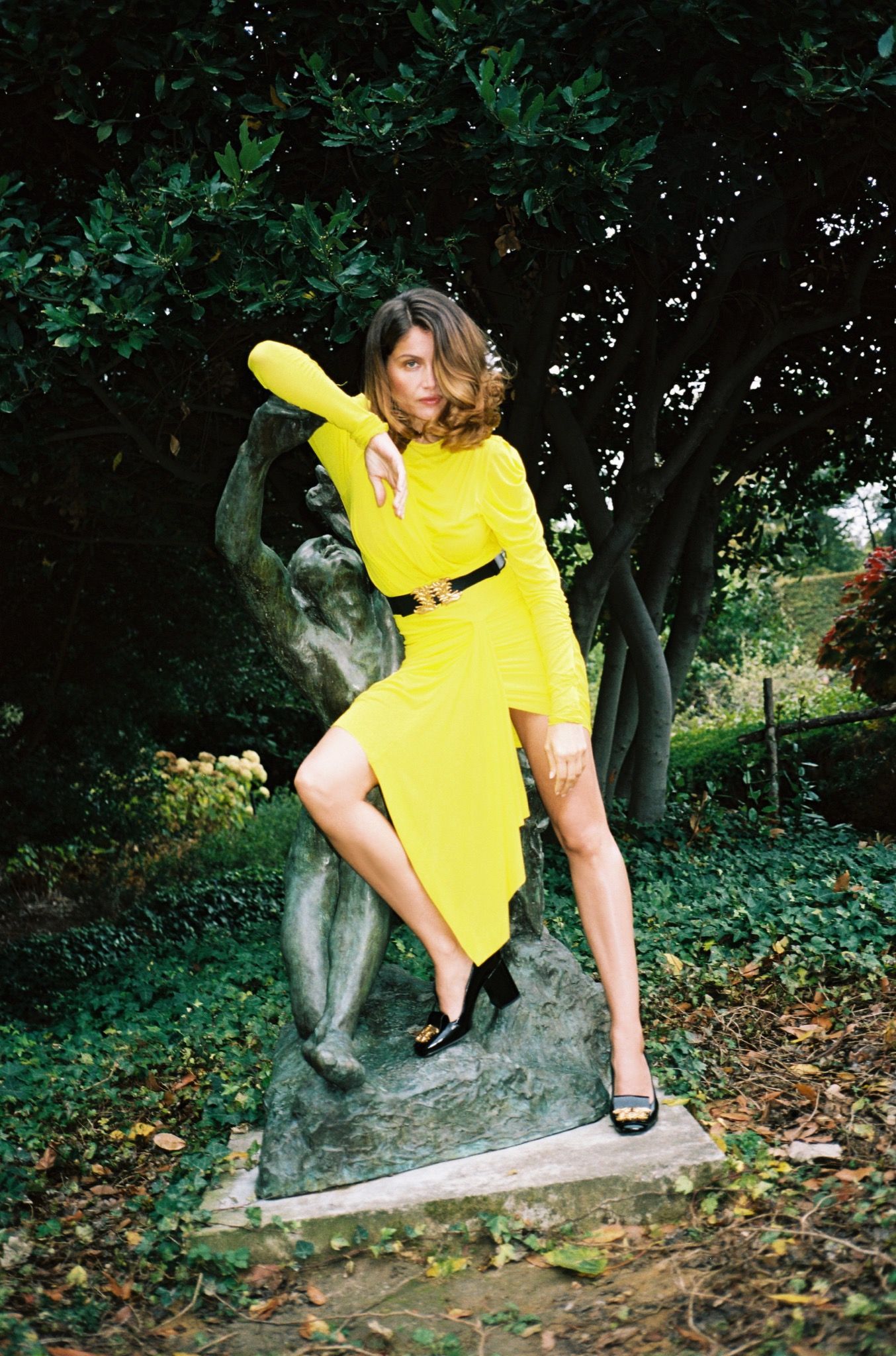
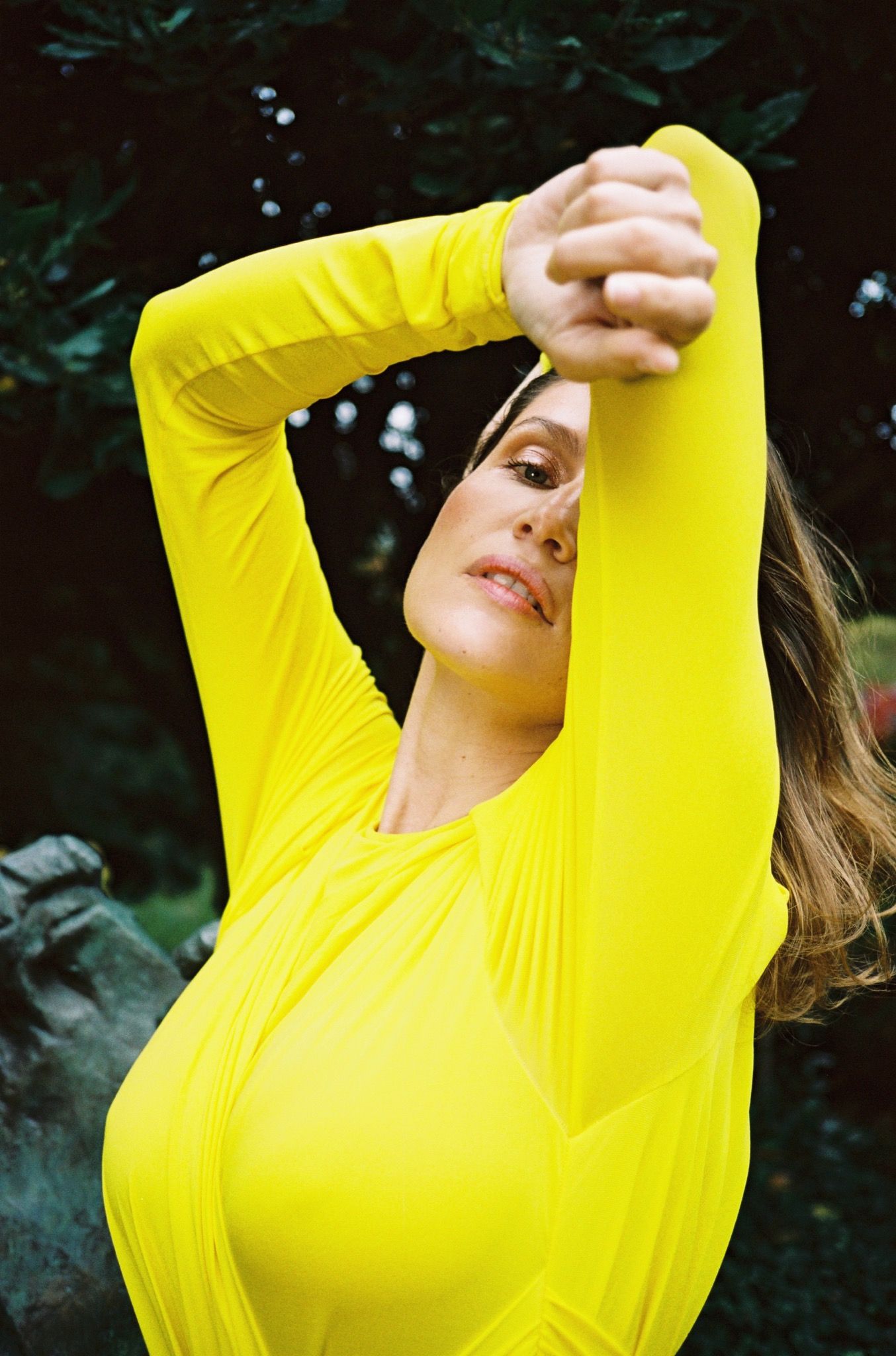
Your full name is Laetitia Maria Laure. Who is Maria? And who is Laure?
My grandmothers. You have three children: Sahteene, Orlando, and Athena.
What values are you raising them with?
To love themselves.
I saw on Instagram that you took your eldest daughter, Sahteene, to the Miu Miu show back in June. It was her first fashion show and her first public appearance. At the same time the news dropped that Sahteene will be starting to work as a model, with the same agency that represents you. What advice did you give her?
I said to her: “You are allowed to do it if you don’t miss out on school and your grades remain good. If I see you bringing home bad grades, you stop.” I told her: “If this is really what you want to do, I will always support you. I believe in you, but don’t try to do what I did. Don’t follow in my footsteps; make your own steps, go your own way. Don’t underestimate how violent it will be to always be compared to me.” She knows how hard it can be to be my daughter. In school she was often bullied – people enjoy gossiping and saying nasty things, but that’s also a form of abuse. And once she enters the fashion or film industry it will be worse than the bullying in school ever was.
Does she take advice from you?
Yes, I think so.
Are your children able to separate your public image from your image as a mother?
Yes, of course. We live a normal life. I take the bus, go grocery shopping. Being famous in France is not like being famous in America. We can live a private life here.
You also support the gilets jaunes movement.
I never feel far from people with precarious circumstances. I don’t forget where I came from. I have a simple background. My parents have always lived with the fear of not having any money. I feel solidarity with the gilets jaunes activists. Today, I am a privileged person – I’m aware of that – but I’ll never lose my connection to my roots, nor to the reality of life or that living a decent life is a struggle.
You got married only recently, for the first time. How come you said yes to this man and never to either of the two fathers of your children?
I don’t know. And I like the fact that I can’t explain it. There was something about the way Louis looked at me. But saying yes wasn’t easy – I never wanted to get married. I’m not sure if you saw the necklace I wore on my wedding day?
No, I didn’t.
It was a silver skull.
“Who is eating who? Is the photographer consuming the model, or is the model consuming the camera?”
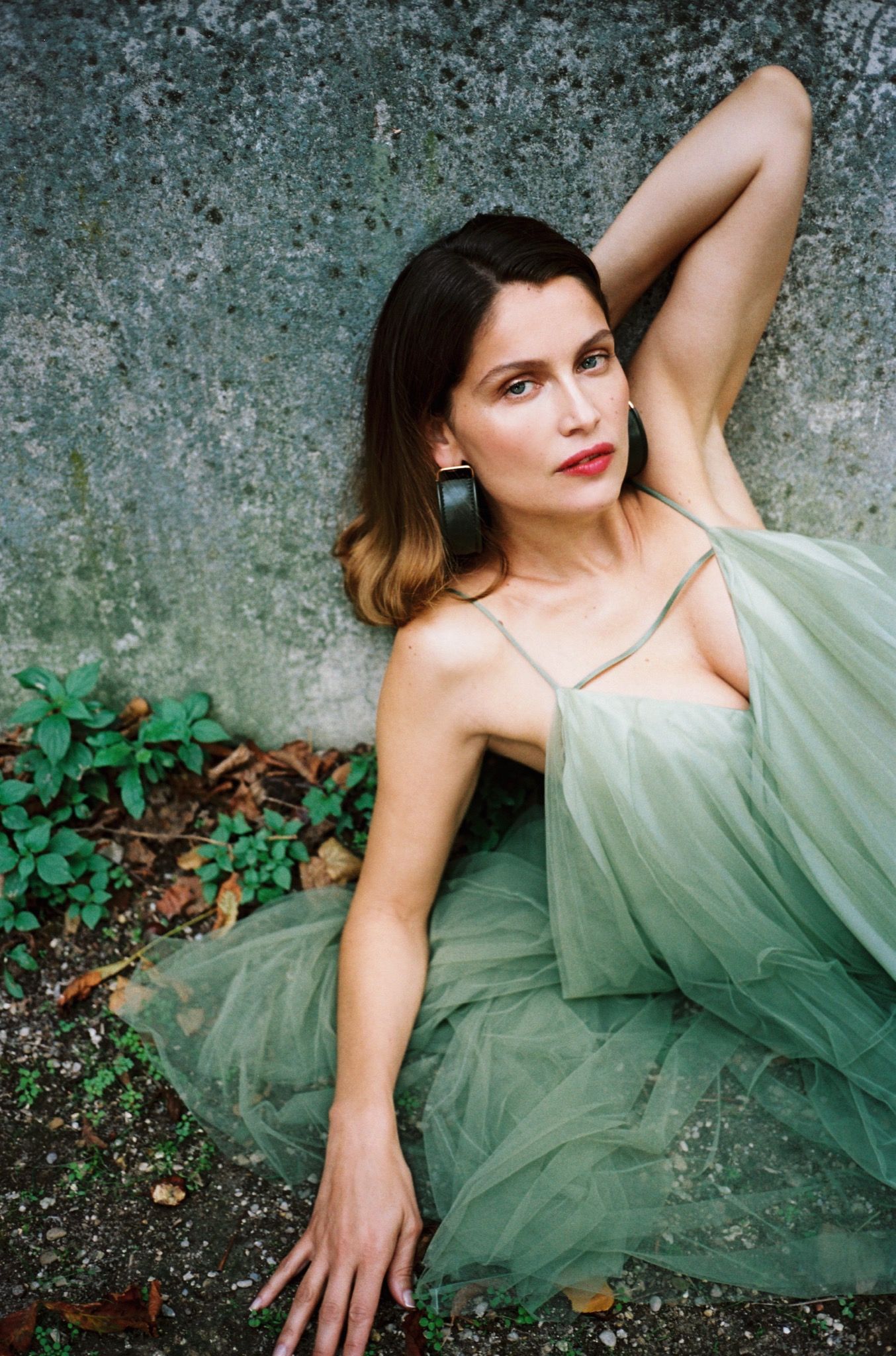
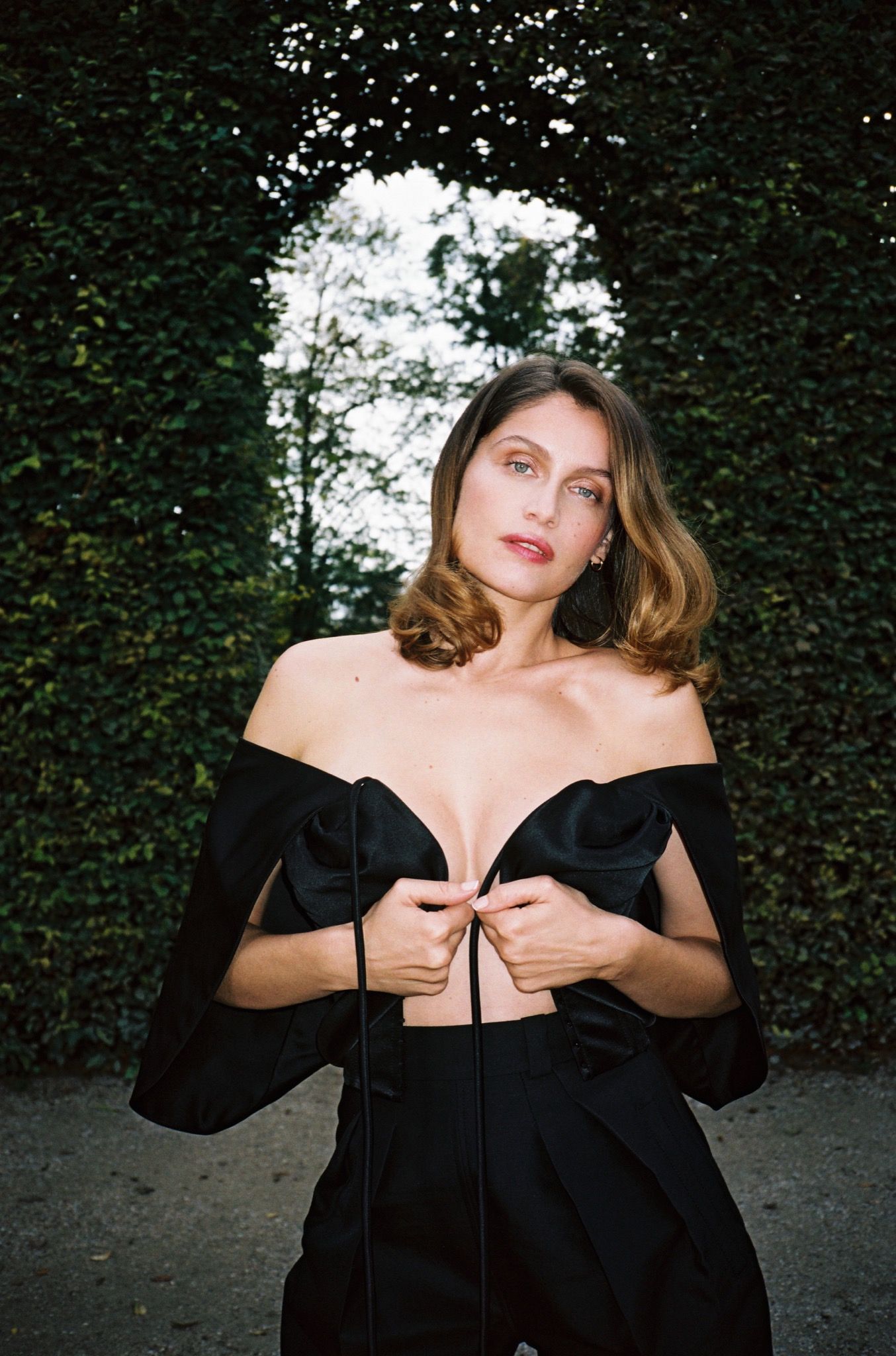
Do you ever intimidate yourself?
Only if I lose my confidence. That is possibly my most vulnerable state. You recently directed your first movie, En moi (In Me), starring fellow model Lara Stone. It’s about a woman trying to express herself without really talking.
Is this film about you?
It’s a reflection. I wanted to make a movie to show that just because you don’t speak doesn’t mean you’re not saying anything. It is about the fashion world and about being in front of the camera, and it asks the questions: Who is stealing from who? Is the photographer stealing from you? Who gives what? Who is eating who? Is the photographer consuming the model, or is the model consuming the camera?
I asked Lara to play the lead because when I first met her, on a job, I was touched by her. I sensed – although she hardly said anything – that she is extremely emotional, like me. You know how society tries to make women seem weak by saying we are “emotional.” For me it’s a superpower, like a martial art. When I wrote En moi, I thought of Lara as I saw myself in her, like looking into a mirror.
Is there any overlap between being a performer, whether you are modeling or acting, and being a director?
I’m an extremely shy person, so I guess for me the common ground is that all of my practices take me out of my comfort zone. The reason I do what I do is rooted in my childhood, in the fact that nobody took notice of me. It was as if I was screaming to the mountain, waiting for the echo to return, but the echo never reverberated back to me. That was pretty scary. Now I want to make sure there is an echo.
You recently played alongside your husband, Louis Garrel, in the film L’homme fidèle (A Faithful Man): a middle-aged couple threatened by a seductive 20-something. Your rival is played by Lily-Rose Depp.
Usually women in their 40s need to fear women in their 20s. You make it clear she can’t live up to you. People didn’t like my role at all. It shocked many women that I was not intimidated by a beautiful young woman after the same man as me. I believe there are two kinds of people in this world: those who scare you, and those who are afraid. You should always be one of the scary ones.
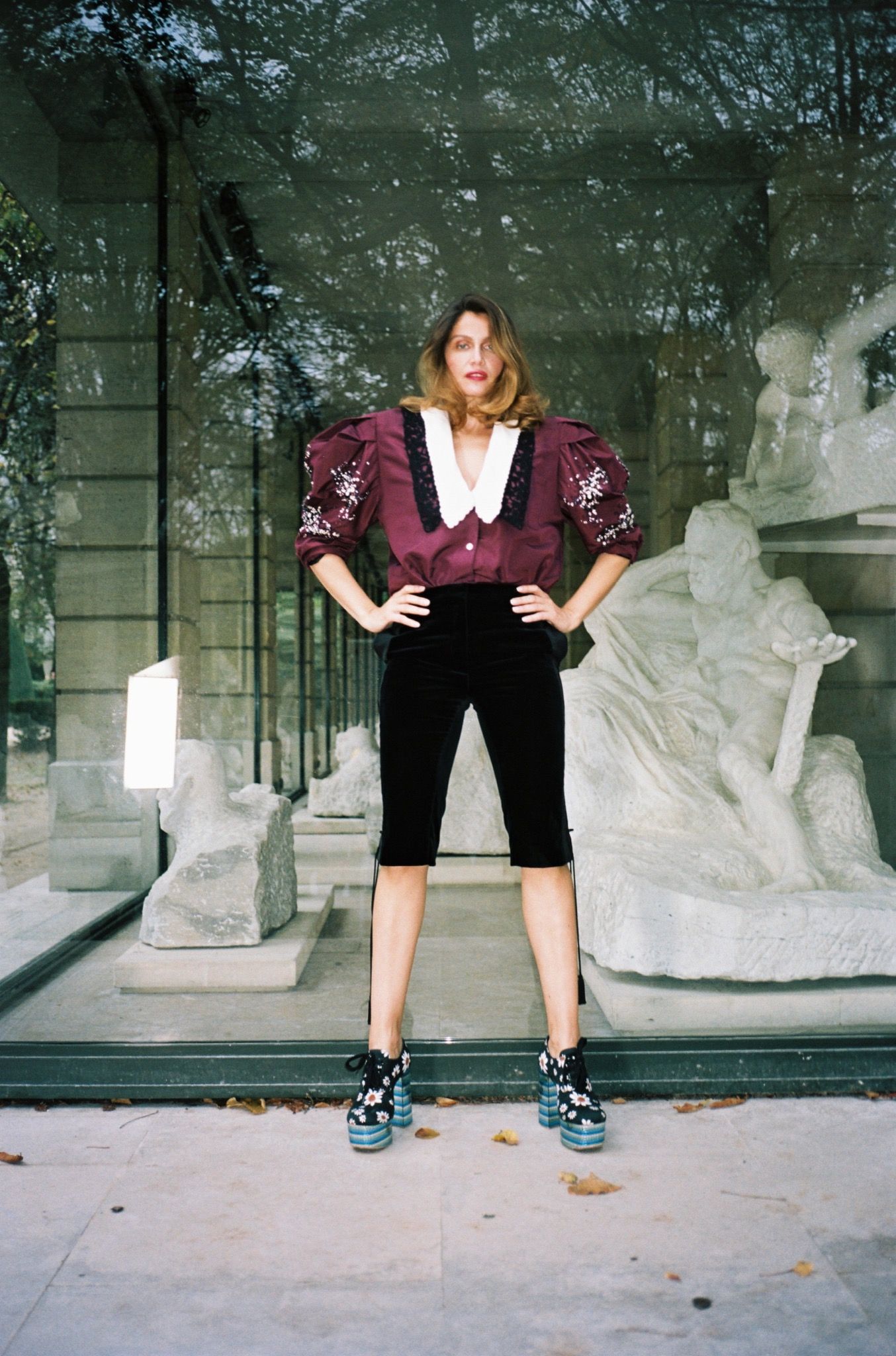
Credits
- Interview: Jina Khayyer
- Photography: Pierre-Ange Carlotti
